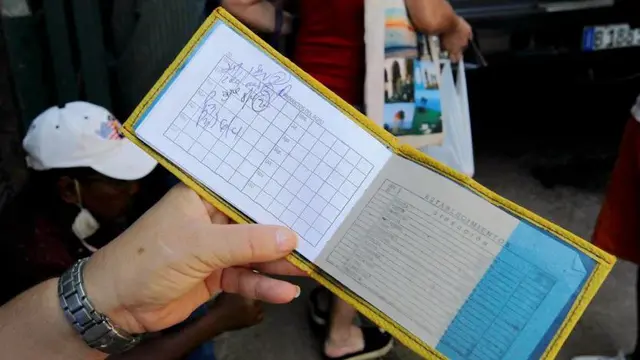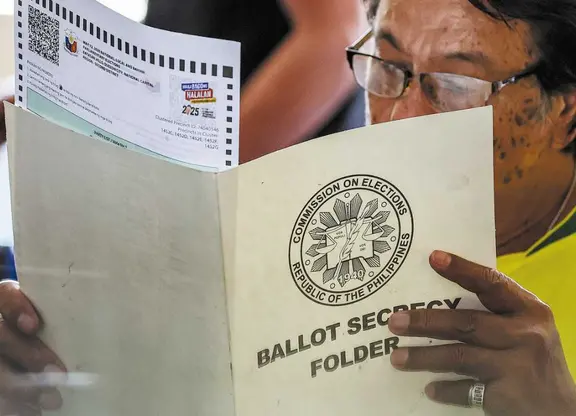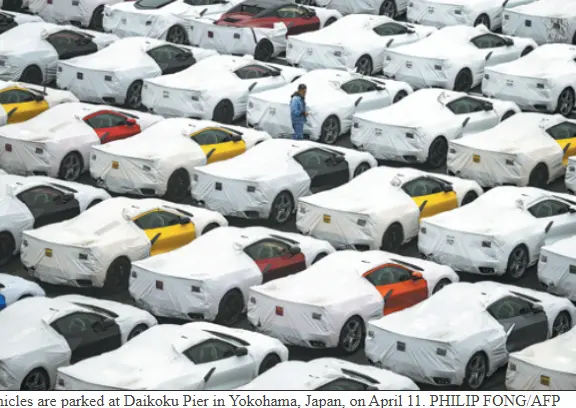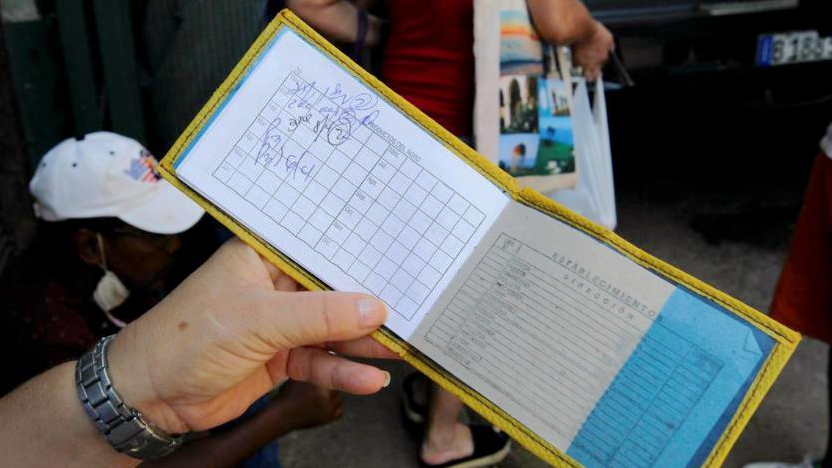
A woman shows her ration book to buy goods in a subsidized state store amid the coronavirus disease (COVID-19) outbreak, in Havana, April 22, 2020. /Reuters
Cuba's decades-old rationing system, once slated for elimination, is staging a comeback during the coronavirus pandemic in a bid to prevent Cubans from exposing themselves to the novel virus by going on frantic shopping hunts.
Last month, the island nation closed its borders to travelers, shuttered schools and ordered the use of face masks in a bid to contain the novel virus, sending doctors and medical students to monitor the population.
However, hours-long queues outside Cuban supermarkets due to widespread shortages of basic goods risk undermining the country's response to the spread of the virus, resulting in potential hotbeds of infection.
To combat that, authorities this month added more products to Cubans' monthly ration book – known locally as the "libreta" – and started experimenting with online commerce and delivery options.
Meanwhile, Cuban authorities shut down some of the biggest supermarkets and suspended public transport.
"Just as it seemed like it was dying out, the libreta has managed to take a new breath of air," said Cuban economist Omar Everleny.
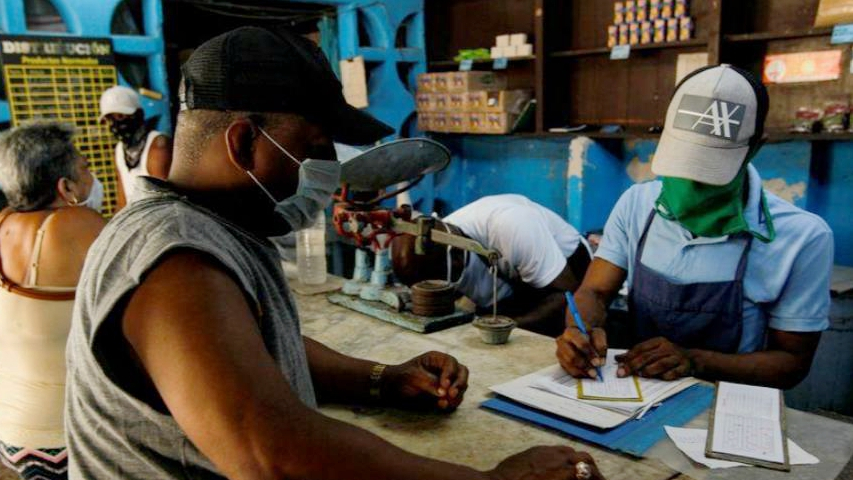
A man uses a ration book to buy goods in a subsidized state store amid the coronavirus disease outbreak in Havana, April 22, 2020. /Reuters
Introduced in late 1950s, the "libreta" was called outdated by Raul Castro, who became the president of Cuba in 2008 and went about cutting the number of items that were rationed.
Panic shopping in view of the pandemic has forced supermarkets worldwide including in some U.S. cities to introduce their own informal rationing by putting limits on the amount of basic supplies like toilet paper and hand sanitizer that shoppers can buy in one trip.
In Cuba, some products such as laundry soap and washing-up liquid are being added back on to the government-issued ration book albeit at market rather than subsidized prices while people are now allowed more rations of chicken.
"This chicken means we don't have to go to stand in enormous queues," said Havana resident Margarita Morejon, cutting up chicken in her kitchen. "It's not much but it helps us get by."
Cubans complain the rations are still insufficient and the state has started opening some virtual stores as another alternative.
Moreover, not all Cubans have a device or the money to access the internet, especially those relying on measly state pensions or wages, like Havana resident Esperanza Moreno, 68, whose pension is equivalent to around 15 U.S. dollars per month.
She said the old-fashioned libreta is "like a lifeline in these times of virus."
Source(s): Reuters
 简体中文
简体中文

